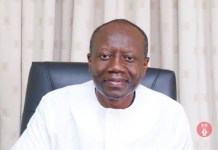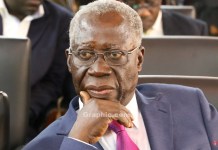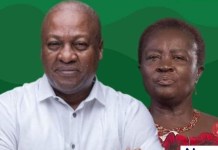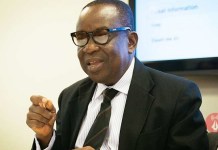There are personalities who in their own respects contributed to shaping history. Ghanaweb, as part of the Ghana month series, has compiled some of these legends whom we have learnt about over time.
Yaa Asantewaa
Call her the Abigail of her time; in the midst of men, she arose, among men who were disheartened in the face of war.
“If you, the men of Ashanti will not go forward, then we will… I shall call upon my fellow women… We will fight till the last of us falls in the battlefields.” Those were the words of a woman whose bravery has been celebrated years after her demise in 1921.
Born in 1840, Yaa Asantewaa was born into a family of traditional rulers. As sister to Ruler of Ejisu (Ejisuhene) Nana Akwasi Afrane Okpase, she was appointed queen mother. She used her influence in that position to nominate her grandson as Ruler of Ejisu. In January 1986, her grandson (Kofi Tene) King of Asante (Prempeh I) and other traditional leaders were exiled to Seychelles by the British who were not exactly happy about the rule of another group of persons under their authority; it was their way of getting rid of them.
To further establish their lordship, British Governor-General of then Gold-Coast, Frederick Hodgson, coveted the Golden Stool, the sacred symbol of the Asante Kingdom.
Yaa Asantewaa, together with other chiefs, after noticing how much suffering they will be subjected to if they allowed the British to continue in their ways held a secret meeting to find solutions to the problem. There was still no consensus on which military step to take to deal with the British oppressor at the time.
This was it for Yaa Asantewaa who decided to take up the mantle of leadership and fight the ‘foreigners’ who had overstepped their welcome, particularly since her male counterparts appeared as shying away from the task.
“Now I have seen that some of you fear to go forward to fight for our king. If it were the brave days of Osei Tutu, Okomfo Anokye and Opoku Ware I, chiefs would not sit down to see their king taken without firing a shot. No white man could have dared to speak to the Chief of Asante in the way the governor spoke to you chiefs this morning. Is it true that the bravery of Asante is no more? I cannot believe it. It cannot be! I must say this: if you, the men of Asante, will not go forward, then we will. I shall call upon my fellow women. We will fight the white men. We will fight till the last of us falls on the battlefield.” Her very words before the war.
Yaa Asantewaa led the famous war known as the War of the Golden Stool in 1900 against the British. She was later captured and sent on exile to the Seychelles. Yaa Asantewaa died in exile on the 17th of October 1921. Yaa Asantewaa’s War was the last major war led by an African woman. To date, she her legacy lives on, and she is honoured in Africa as one of the greatest African women. Her body was later returned to Ghana where she was given a befitting burial. Today, the Yaa Asantewaa Girls Secondary School preserves her memory.
Kwame Nkrumah
Kwame Nkrumah became the first prime minister and later president of Ghana. He was born on September 21, 1909, at Nkroful in what was then the British-ruled Gold Coast. Kwame Nkrumah’s father was a goldsmith and his mother a retail trader. Baptized a Roman Catholic, Nkrumah spent nine years at the Roman Catholic elementary school in nearby Half Assini. After graduation from Achimota College in 1930, he started his career as a teacher at Roman Catholic junior schools in Elmina and Axim and at a seminary.
Trained as a teacher, he went to the United States in 1935 for advanced studies and continued his schooling in England, where he helped organize the Pan-African Congress in 1945. He returned to Ghana in 1947 and became general secretary of the newly founded United Gold Coast Convention but split from it in 1949 to form the Convention People’s party (CPP).
After his ‘positive action’ campaign created disturbances in 1950, Nkrumah was jailed, but when the CPP swept the 1951 elections, he was freed to form a government, and he led the colony to independence as Ghana in 1957. A firm believer in African liberation, Nkrumah pursued a radical pan-African policy, playing a key role in the formation of the Organization of African Unity in 1963.
As head of government, he was less successful, however, and as time passed he was accused of forming a dictatorship. In 1964 he formed a one-party state, with himself as president for life, and was accused of actively promoting a cult of his own personality. Overthrown by the military in 1966, with the help of western backing, he spent his last years in exile, dying in Bucharest, Romania, on April 27, 1972.
His legacy and dream of a “United States of African” still remains a goal among many.
Nkrumah was the motivating force behind the movement for independence of Ghana, then British West Africa, and its first president when it became independent in 1957. His numerous writings address Africa’s political destiny.
Philip Gbeho
Philip Comi Gbeho was born on January 14, 1904 to mother, Ametowofa, a trader from the Gadzekpo family and father, Do Gbeho who was a fisherman.
He was born in Vodza, a fishing village in the suburb of Keta in the Volta Region. At the Keta Roman Catholic Boys School where he had his basic education, he learnt to play the organs and became a pupil organist till he left the school.
He was a gifted musician from childhood. Philip could play nearly all the drums of the Ewe Agbadza. His efforts in music caught the attention of the authorities of the Achimota College who invited him to teach music at the college in 1938.
In 1949, he was offered a one-year scholarship by the British Council to study for the Licentiate diploma at the Trinity College of Music in the United Kingdom.
In 1950, Gbeho was granted a Gold Coast government extension scholarship to continue to study at Trinity College of Music for the Graduate of Trinity College (GTCL) degree in music. He continued simultaneously with his lectures, broadcasts and African music performances at various venues in London, including the Artists International Centre in Piccadilly, the West African Students’ Union (WASU) Secretariat, Strawberry Hill College, the Royal Empire Society, the Royal Geographical Society, and Royal Kew Gardens.
On the eve of Ghana’s Independence celebrations, Gbeho won an open competition to write the National Anthem for the newly independent Ghana. His composition remains the national anthem of Ghana until now.
Philip Gbeho died on 24th September 1976. He was married with seven children.
He is celebrated as one of Ghana’s patriotic individuals who composed the Ghana National Anthem. He is credited with the establishment of the Arts Council of Ghana and is acknowledged as the Director of Music and conductor of the National Symphony Orchestra in Ghana.
Komfo Anokye
There have been conflicting narrations about his tribe and origin but one thing is certain, his name was Kwame Frimpong Anokye. He later became known as Okomfo Anokye, the cofounder of the Ashanti Kingdom in West Africa.
Some accounts link his lineage to Awukugua-Akwapim in Eastern region, but his descendants claim he was born of an Ashanti mother Yaa Anubea, both and Ano his father who was from Awukugua-Akwapim part of the Ayade Tribe and was related to the military leader Osei Tutu (the other cofounder of the Ashanti Kingdom) through a maternal uncle.
Some accounts also say he was a twin who had linkages to the Volta Region before he came to the Ashanti Empire.
During his birth, he brought with him gifts from the gods; totem poles which were firmly clinched to his palms.
His parents and family believe he was sent by the gods to lead the Okere people. Later in life, he attained priesthood and was given the title “Okomfo”. His full name became Okomfo Anokye. His ancestral home (the house he was born in) is opposite the Awukugua Chief Palace. A shrine is also located at Awukugua and is a frequent site of meeting for the Ohum festival in October. The shrine consists of a palm tree, which he climbed without his sandals, and a large rock, from which he carved a game of Oware. Other shrine sites are located in Awukugua-Akuapim.
Komfo Anokye was considered the greatest lawgiver, the wisest sage of the Asante people and he was mostly known for his reported abilities in healing and regulating nature.
He met Osei Tutu, and the two became close. Anokye’s impact on the Asante nation is undisputed.
According to history, he is the principal architect of Asante laws, customs, and beliefs about religion and supernatural powers. He has a record of great deeds and miraculous cures. It is said that, among other things, he climbed palm trees with his sandals on and carved a game of Oware—a strategy game utilizing shallow indentations and pebbles or the like—out of a stone slab with his bare fingers.
He is also said to be the brain behind the naming of Kumasi, the Ashanti Regional capital and Kumawu, a district in the region. According to records, he planted two trees, one which survived and the other died.
He endowed the emerging Asante state with a national capital, a national festival, a national army and a flexible constitution.
King Osei Tutu gave Anokye land to settle on after he helped them to defeat the Denkyera. This land was named Nzemaa. According to oral tradition, after the Ashanti defeated the Denkyera, the Golden Stool descended from heaven to land on Anokye’s lap.
He gave it to the Ashantis. He also put a sword in the ground as a symbol of unity between the Nzema and the Ashanti. The oath also prevented the Ashanti from fighting the Nzema and allows Ashantis and Nzemas to marry each other with one single plantain as dowry.
Tetteh Quarshie
Born in 1842, to a farmer from Teshie; Mlekuboi and mother; Ashong-Fio, both hailing from the Ga-Dangme ethnic group, Tetteh Quarshie, changed Ghana’s fate at age 34, when he introduced the ‘magic beans’ into the country.
In his teens Tetteh Quarshie became an apprentice in a Basel Mission workshop at Akropong. Due to his hard work he soon became a master blacksmith and was in fact the first blacksmith to be established at Akuapim-Mampong. His hobby was farming.
In 1870, Tetteh Quarshie went on a missionary trip to the Spanish colony Fernando Po (now Bioko in Equatorial Guinea) and returned about six years later with six cocoa beans (the Amelonado) and made history.
History has it that Basel missionaries, introduced the crop into Ghana after the Dutch tried planting in the Coastal areas of the then Gold Coast.
None of these missionaries however, managed to establish a thriving farm that still yields fruits for Ghana several years on.
Tetteh Quarshie did, when he brought cocoa from his journeys in Fernando Po (now Equatorial Guinea). A blacksmith’s toolbox, that’s what six cocoa pods were hidden in and shipped back into the then Gold Coast.
Considering he was on a missionary journey in Fernando Po, he was required to pass through the checkpoint, like every individual returning to their various countries, to be checked for any foreign items.
At this point, it was a decision; to get exposed or to strategically hide some six cocoa pods he had taken from Fernando Po (now Equatorial Guinea). He hid the cocoa pods at the bottom of his tool box and covered it with his own forged tools.
Over six weeks on the ship, he journeyed back to Gold Coast with the pods.
Even here, he went back home and tried planting the first seed in Accra. That failed though, with the soil type, mostly sandy and clayey. Then his missionary work came in, he found good soil in Mampong Akuapem, where his Basel missionary works continued. There, he was given some acres of land by the then Mampong Chief, where he planted his very first seed and that’s where cocoa cultivation started in Gold Coast, now Ghana.
140 years on, and Ghana is still reaping the fruit of his bravery and toil.
Ebenezer Ako-Adjei – founding member of the UGCC
Dr. Ebenezer Ako-Adjei was a nationalist politician from Ghana, one of the “Big Six”, who were arguably some of the most famous people in Ghana’s fight for independence from British rule. He was also a founding member of the United Gold Coast Convention, the political party that initially spearheaded the surge for independence.
He was born on June 17, 1916, in Adjeikrom, in the Eastern Region of Ghana (then the Gold Coast), to Samuel Adjei who was a farmer and trader, and Mrs. Johanna Okailey Adjei.
His early education began in the Eastern Region until he was taken to Accra (the current capital of Ghana), where he continued his education at the Presbyterian Middle and Junior Schools, the Presbyterian Boys’ Boarding School and Accra Academy. From June 1937 to December 1938 he was a Second Division Clerk in the Gold Coast Civil Service. He was assigned to assist Harold Cooper, a European Assistant Colonial Secretary, and J. E. S. de Graft-Hayford to organise and establish the Gold Coast Broadcasting Service. These were the beginnings of what is now the Ghana Broadcasting Corporation.
In December 1938 he resigned from the Gold Coast Civil Service to travel to the USA to attend Lincoln University, Pennsylvania. At Lincoln University he was housed at Houston Hall. He registered for courses in Political Science, Economics, Sociology, English, Latin and Philosophy.
Together with a group of students they often had long heated discussions (known as Bull Sessions) about the emancipation of African countries from colonial domination. Among the African students who regularly took part in these discussions were Ako Adjei, Mr. Nkrumah, K. A. B. Jones-Quartey, Ozuomba Mbadiwe, Nwafor Orizu and Mr. Okechukwu Ikejiani.
He was instrumental in introducing Dr. Kwame Nkrumah to the political scene in Ghana and Nkrumah later became the first president of Ghana. However, in 1962, President Nkrumah had him imprisoned.
On the eve of his release from the Nsawam Prison in 1966, Ako-Adjei completely forswore politics. He spent the remainder of his long life in relative obscurity. Ako-Adjei died in Accra on 14th January 2002.
Edward Akufo-Addo
Edward Akufo-Addo was a Ghanaian politician and lawyer. He was a member of the “Big Six” leaders of the United Gold Coast Convention (UGCC), which engaged in the fight for Ghana’s independence. He became the Chief Justice and later President of the Republic of Ghana.
Born at Dodowa, he had his basic education at Presbyterian Primary and Middle Schools at Akropong. In 1929, he entered Achimota College, where he won a scholarship to St Peter’s College, Oxford, where he studied Mathematics, Politics and Philosophy. Akufo-Addo was called to the Middle Temple Bar, London, UK, in 1940 and returned to what was then the Gold Coast to start a private legal practice a year later.
In 1947, he became a founding member of the United Gold Coast Convention (UGCC) and was one of the “Big Six” detained after disturbances in Accra in 1948. From 1949 to 1950, he was a member of the Gold Coast Legislative Council and the Coussey Constitutional Commission.
After independence (1962–64), Akufo-Addo was a Supreme Court Judge (One of three Judges who sat on Treason trial involving Tawia Adamafio, Ako Adjei and three others after the Kulungugu bomb attack on President Kwame Nkrumah and for doing so, was dismissed with fellow judges for finding some of the accused not guilty.
From 1966 to 1970, he was appointed Chief Justice by the National Liberation Council (NLC) regime, as well as Chairman of the Constitutional Commission (which drafted the 1969 Second Republican Constitution). He was also head of the NLC Political Commission during this same time period.
From 31 August 1970 until his deposition by coup d’état on 13th January 1972, Akufo-Addo was President of Ghana in the Second Republic. Unlike Nkrumah, however, he was only the nominal chief executive. Due to Nkrumah’s authoritarian excesses, the president’s powers were almost entirely ceremonial. Real power rested with the prime minister, Dr. Kofi Abrefa Busia. On 17th July 1979, Akufo-Addo died of natural causes.

Joseph Boakye Danquah
Nana Joseph Kwame Kyeretwie Boakye Danquah, PhD played a significant role in pre- and post-colonial Ghana, which was formerly the Gold Coast, and in fact is credited with giving Ghana its name.
During his political career, Danquah was one of the primary opposition leaders to Ghanaian president and independence leader Kwame Nkrumah.
J. B. Danquah was described as the “doyen of Gold Coast politics” by the Watson Commission of Inquiry into the 1948 Accra riots.
Danquah was born on December 18, 1895 in the Ghanaian town of Bepong in Kwahu in the Eastern Region of Ghana. His elder brother is Nana Sir Ofori Atta I and his son is actor Paul Danquah.
At the age of six, Danquah began schooling at the Basel Mission School at Kyebi. He attended the Basel Mission Senior School at Begoro. On successful completion of his standard seven examinations in 1912, he was employed by Vidal J. Buckle, a barrister-at-law in Accra, as a clerk, a job which aroused his interest in law.
After passing the Civil Service Examinations in 1914, Danquah became a clerk at the Supreme Court of the Gold Coast, which gave him the experience to be appointed by his brother, Nana Sir Ofori Atta I, who had become chief two years earlier, as secretary of the Omanhene’s Tribunal in Kyebi.
After two unsuccessful attempts at the University of London matriculation, Danquah passed in 1922, enabling him to enter the University College of London as a philosophy student. He earned his B.A. degree in 1925, winning the John Stuart Mill Scholarship in the Philosophy of Mind and Logic. He then embarked on a Doctor of Philosophy degree, which he earned in two years. He became the first West African to obtain the Doctor of Philosophy degree from a British university.
Danquah married Mabel Dove, daughter of prominent barrister Francis Dove as first wife in 1933 bearing him a son. Danquah later married Elizabeth Vardon.
He also became a member of the Legislative Council in 1946 and actively pursued independence legislation for his country. In 1947 he helped to found the pro-independence United Gold Coast Convention (UGCC) as a combination of chiefs, academics and lawyers.
Danquah stood as a presidential candidate against Nkrumah in April 1960 but lost the election. On 3rd October, 1961, Danquah was arrested under the Preventive Detention Act, on the grounds of involvement with alleged plans to subvert the CPP government. He was released on 22nd June, 1962. He was later elected president of the Ghana Bar Association.
Danquah was again arrested on 8 January 1964, for allegedly being implicated in a plot against the President. He suffered a heart attack and died while in detention at Nsawam Medium Prison on February 4, 1965.
After the overthrow of the CPP government in February 1966 by the National Liberation Council (NLC), Danquah was given a national funeral and his status was rehabilitated.
William Ofori Atta
Nana William Ofori Atta, the son of Nana Sir Ofori Atta I who was the Omanhene of Akyem Abuakwa between 1912 and 1943. He attended the Mfantsipim school and was later among the first batch of students at the Achimota School who pioneered the intermediate degree programs. Popularly called “Paa Willie”, was a founding member of the United Gold Coast Convention and was one of “The Big Six”. He became a lawyer in 1956.
William Ofori Atta was a founding member of the United Gold Coast Convention. He won one of the Akim Abuakwa seats during the 1951 Gold Coast election. He later became the leader of the United Party in opposition to Dr. Kwame Nkrumah. He was detained by Dr. Kwame Nkrumah during the first republic under the Preventive Detention Act. During the second republic, he was Minister for Education and then Minister for Foreign Affairs in the Progress Party government of Dr. Busia.
He was an active member of the People’s Movement for Freedom and Justice (PMFJ) which campaigned against the ‘Union Government’ concept by General I.K. Acheampong, then Head of state of Ghana and Chairman of the Supreme Military Council (SMC). This was an attempt by the military regime to extend military rule instead of handing back power to civilians. After the fall of the SMC, he stood for president in the 1979 Ghanaian presidential election on the ticket of the United National Convention coming third with 17.41% of the popular vote. Eventually, he became chairman of the Council of State for the Third Republic.
Ofori Atta delivered the J.B. Danquah Memorial Lectures organised by the Ghana Academy of Arts and Sciences in 1985. His topic was – “Ghana, A Nation in Crisis”. He died in 1988 and was given a state burial.
Emmanuel Odarkwei Obetsebi-Lamptey
Emmanuel Odarkwei Obetsebi-Lamptey was born on April 26, 1902 at a small Ga village near Ode, a suburb of Accra. His father was Jacob Mills-Lamptey, a businessman, and his mother was Victoria Ayeley Tetteh. He was one of the founding fathers of Ghana and one of the founders and leaders of the United Gold Coast Convention (UGCC) known as “The Big Six”. He was the father of NPP politician Jake Obetsebi-Lamptey.
Obetsebi-Lamptey was educated at the Accra Wesleyan School and Kv. Government Boys’ School, from which he transferred to the Royal School in 1921 to complete his elementary education, passing his school certificate examination, he was employed as a shorthand typist by A. J. Ocansey, a prosperous merchant from Ada, a port east of Accra at the mouth of the Volta River. In 1923, Obetsebi-Lamptey passed his civil service examination and became a clerk in the Customs and Excise Department. He worked in Accra till 1930 and in Takoradi till 1934, when he left for the United Kingdom to study law.
He graduated LL.B., and was called to the Bar at the Inner Temple in 1939. By then World War II (1939–45) had begun, and he stayed and worked in England, taking an active part in student politics and in the agitation for colonial freedom.
Emmanuel Obetsebi-Lamptey was first married a Dutch woman, Margaretha with whom he had Jake Obetsebi-Lamptey, a New Patriotic Party politician, television and radio producer and advertising businessman.
Obestebi-Lamptey later married a Ga woman, Augustina Akuorko Cofie (17th December 1923–14th November 2019), one of twin daughters of William Charles Cofie and Irene Odarchoe. She was a co-founder of the Gold Coast Women’s Association and a former tutor at the Accra Methodist Girls School from 1947 to 1953. Obetsebi-Lamptey had two children with Cofie, Nah-Ayele and Nii Lante.
Emmanuel is best remembered for his actions taken as a “Big Six” forefather for Ghana. Leading the United Gold Coast Convention, he was able to bring about political, social, and economic change needed to declare independence from the British in 1957. Monuments and Roundabouts designed to honor Emmanuel and the other fathers can be found throughout the streets of Ghana today. The residents of Ghana recognize his achievements throughout history and continue to respect these political figures with the use of monuments and public displays.
Additional Information from
ghana-autobiography-kwame-nkrumah
Wikipedia
Source: www.ghanaweb.com













